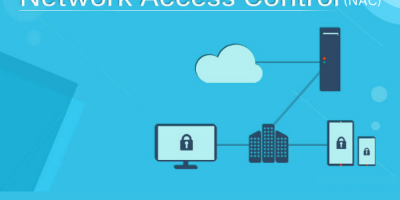As your startup business grows in leaps and bounds, you’ll find yourself dealing with more contracts. Contracts are some of the most sensitive documents any firm needs to secure. Contracts from new employees, salaries, new sales, and confidentiality agreements need discretion.
Some companies may choose to restrict employees’ access to an e-mail inbox, place strong passwords to internal sources. Others run their firms oblivious of the risks.
While some contract management issues may be minor, it is advisable to engage ContractSafe UK to help your set up reliable security systems. This mitigates any risks because a bigger crisis may be in the offing.
Contract Management Security Explained
Contracts are the bedrock upon which firms are built. They provide information about workers’ remuneration, ensure agreements with other partners are solid and performing, and follow up services providers.
Contract management security is the set of digitalized systems, practices, and ethics that the confidential information captured in the contracts can only be accessed by the right people in a company.
What does contract management security mitigate?
Contract management security systems prevent compliance failures, ineffective reporting, missed deadlines, inefficient workers appraisal performance, and poor access control which can all have devastating consequences to a company such as diminishing profitability.
Is VPN not sufficient?
Contract management is both an internal and external security issue. Most corporates assume that only external threats pose a risk to their data security. Therefore, they stop investing in Virtual Private Network (VPN) to secure company files from malicious third parties. VPN may also be used together with frequent password changes for emails and other sources.
However, security measures should not stop at VPN because internal security risks are potent risks. Only the right member of staff who needs to work with particular information should access it. The rest should be barred because malicious workers in a firm can access confidential contracts and use them against the employer firm.
Common malpractice is where malicious staff employ rogue means to execute contracts and avoiding regular contract approval channels. An internal security risk may allow workers to corrupt data in cloud storage. This can be a costly liability to the entire company.
Therefore, it is critical to address both external and internal risks by combining technical and operational vigilance systems. The combination is an assurance that your confidential data in the contract is safe and secure.
Contracts are the binding documents and thus a company’s lifeline. The security personnel can’t limit access to the firm’s contracts by defining roles or flagging improper contract if they are no clearly defined responsibilities for the contract lifecycle.
Proper contract management practices should be used alongside contract management software to assure a firm’s enhanced data security.
Can professional legal teams end up with contract security risks?
Most startups and mid-sized firms opt to secure contracts in a trade-off fashion. As the management team strives to streamline the legal process to make a profit ethically, they may inadvertently compromise contract security.
Most legal teams managing contract templates, often fall into either of the following mishaps:
Business downtime by confining contract templates to legal process only
This option is the most restrictive in contract systems. It demands that all business users must send a formal email to Legal to request contract generation and activation.
The business users do not have access to the editable version of the contract template. Then, the Legal sends attachment counterparties in PDF form to have them append their signatures.
The legal process only approach compromises speed for security and confidentiality. This is because all contract template generation requires Legal authorization for action. On the flip side, it assures contract security pre and post-execution since Legal only manages all contracting files and processes.
Exposes the firm to security risks when business users generate templates and only present them to Legal for approval, review, and execution.
It is okay to allow business users to generate binding contract agreement templates because it may accelerate the pre-execution process in a contracting lifecycle. However, this compromise is only beneficial if the users generate the contract template without errors.
This approach favors speed over security and complete Legal control. Legal only comes in place for approval, review, and correction when the contract is ready for authorization by appending signature.
Allowing business users to access contract templates enables them to send contracts for signing even when the contract document has not been reviewed.
Is there any other risk in the contracting lifecycle?
The Legal risks discussed above are not exclusive to a single phase in the contracting life cycle. The administration risks may spill to other stages such as the approval, execution, or archival. The contracting process is a daunting task for any management team. Most firms apply too permissive or overly restrictive policies because their teams cannot place boundaries around the process.
What next for the contracting process?
The development and growth in information and technology allow contracting and the Legal teams to improve access policies.
In recent contracting development, Legal team can access policy to policy automatically governed by either the requester role or contract type in question. It may also be determined by other significant contract attributes.
Security Features for Business’s Contract Lifecycle Management checklist
A company’s security contracts should not be separated from its safety and business legal operations. Instead, it should be embedded in the company’s operating procedures and tools.
By hiring the right contract-safe provider near you from the onset, assures you the security of the contracting system without sacrificing the company’s efficiency.
Below are technical and operational CLM’s features to look out for:
- Unbeatable strong encryption
- Security certification
- Cloud-based contracting backup
- Penetration and vulnerability tests
- Fine-grilling user permissions
Takeaway
Contracting is an essential part of small, mid-sized, and large enterprises. As such, security is a primary concern to safeguard the company’s interests from malicious third parties.
As you hire a contracting management security company to help you out, consider the entire lifecycle against implementation, versatility, and integration. Contract management system software makes the process efficient and reliably.














Comments